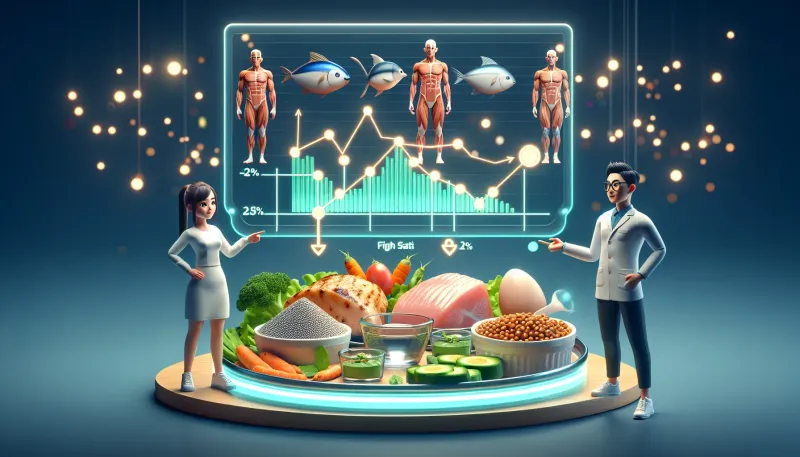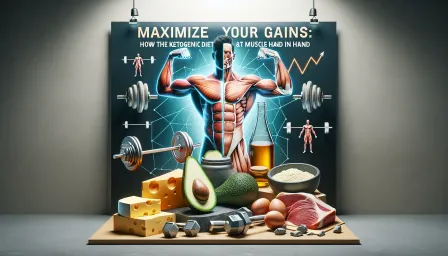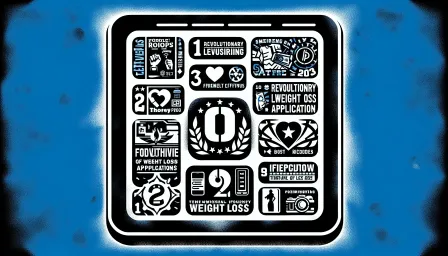Reasons Why a High-Protein Diet for Fat Loss Is Super Effective

Discover why a high-protein diet is super effective for fat loss. Learn the science behind protein, its benefits, and practical tips in this detailed guide.
When it comes to losing fat, many individuals turn to various diet plans in pursuit of their fitness goals. One strategy that has consistently shown promising results is adopting a high-protein diet. In this article, we will explore why a high-protein diet is super effective for fat loss, dive into the science behind it, and provide practical tips for incorporating more protein into your daily regimen.
The Science Behind Protein and Fat Loss
Protein is one of the three macronutrients, alongside fats and carbohydrates. What sets protein apart is its multifaceted role in the body, impacting everything from muscle repair to metabolic function. Here’s why protein is particularly effective for fat loss:
Thermic Effect of Food (TEF)
The Thermic Effect of Food refers to the amount of energy required by the body to digest, absorb, and process the nutrients from food. Protein has a much higher thermic effect compared to fats and carbohydrates. Approximately 20-30% of protein calories are used up during digestion, compared to 5-10% for carbohydrates and 0-3% for fats.
Satiety and Appetite Control
Protein is known to be the most satiating macronutrient. This means that eating protein-rich foods can help you feel full and satisfied for longer periods, reducing the temptation to snack or overeat. This effect is partly because protein influences the levels of appetite-regulating hormones like ghrelin and peptide YY.
Preservation of Lean Muscle Mass
One major advantage of a high-protein diet for fat loss is its ability to preserve lean muscle mass while shedding fat. Muscle mass is metabolically active tissue, meaning it burns calories even at rest. By maintaining muscle mass, you ensure your metabolism remains elevated, aiding in sustained fat loss.
Improved Body Composition
Beyond simple weight loss, the goal for many is to improve body composition—reducing fat while maintaining or increasing muscle. A high-protein diet supports this dual objective by providing the necessary amino acids for muscle repair and growth.
Benefits of a High-Protein Diet for Fat Loss
Understanding the underlying science is crucial, but what are the tangible benefits you can expect from a high-protein diet? Let’s explore:
Increased Metabolism
As mentioned earlier, the high thermic effect of protein can boost your metabolic rate. This means you burn more calories throughout the day, even while at rest.
Enhanced Muscle Recovery and Growth
After engaging in physical activity, especially strength training, your muscles undergo tiny tears which need to be repaired. Consuming adequate protein provides the amino acids necessary for this repair, leading to muscle growth and faster recovery times.
Reduced Cravings and Late-Night Snacking
Many people struggle with cravings and tend to overeat foods high in sugar and fat late at night. Protein helps curb these cravings by promoting satiety, making it easier to stick to a calorie deficit.
How to Incorporate More Protein into Your Diet
Incorporating more protein into your diet doesn't have to be complicated. Here are some practical tips:
Choose High-Protein Foods
- Lean meats like chicken, turkey, and lean cuts of beef
- Fish and seafood
- Eggs and dairy products like Greek yogurt and cottage cheese
- Plant-based proteins such as beans, lentils, tofu, and tempeh
Protein Supplements
If you find it challenging to meet your protein requirements through food alone, consider using protein supplements like whey protein, casein, or plant-based protein powders. These can be added to smoothies, oatmeal, or simply mixed with water.
Plan Your Meals
Meal planning can ensure you're consistently meeting your protein goals. Incorporate a portion of protein with every meal and snack. For example, add a boiled egg or some grilled chicken to your salads.
Snack Smart
Instead of reaching for carb-laden snacks, opt for protein-rich options like string cheese, nuts, or a protein bar. This helps keep your protein intake high and supports your fat loss goals.
Potential Pitfalls and How to Avoid Them
While a high-protein diet offers numerous benefits, it’s essential to navigate it carefully to avoid potential pitfalls:
Balancing Macronutrients
A common mistake is focusing too much on protein at the expense of other macronutrients. Ensure you're consuming a balanced diet that includes healthy fats and carbohydrates to meet your overall nutritional needs.
Hydration
High-protein diets can increase your body's need for water. Make sure you’re staying well-hydrated by drinking plenty of fluids throughout the day.
Quality of Protein
Not all protein sources are created equal. Prioritize high-quality, nutrient-dense protein sources over processed options, which can be high in unhealthy fats and additives.
Conclusion
A high-protein diet can be super effective for fat loss due to its numerous benefits, including increased metabolism, reduced appetite, muscle preservation, and improved body composition. By understanding the science behind protein and implementing practical tips to increase your intake, you can achieve your fat-loss goals more efficiently. Remember to monitor your overall macronutrient balance, stay hydrated, and choose high-quality protein sources for optimal results.



























